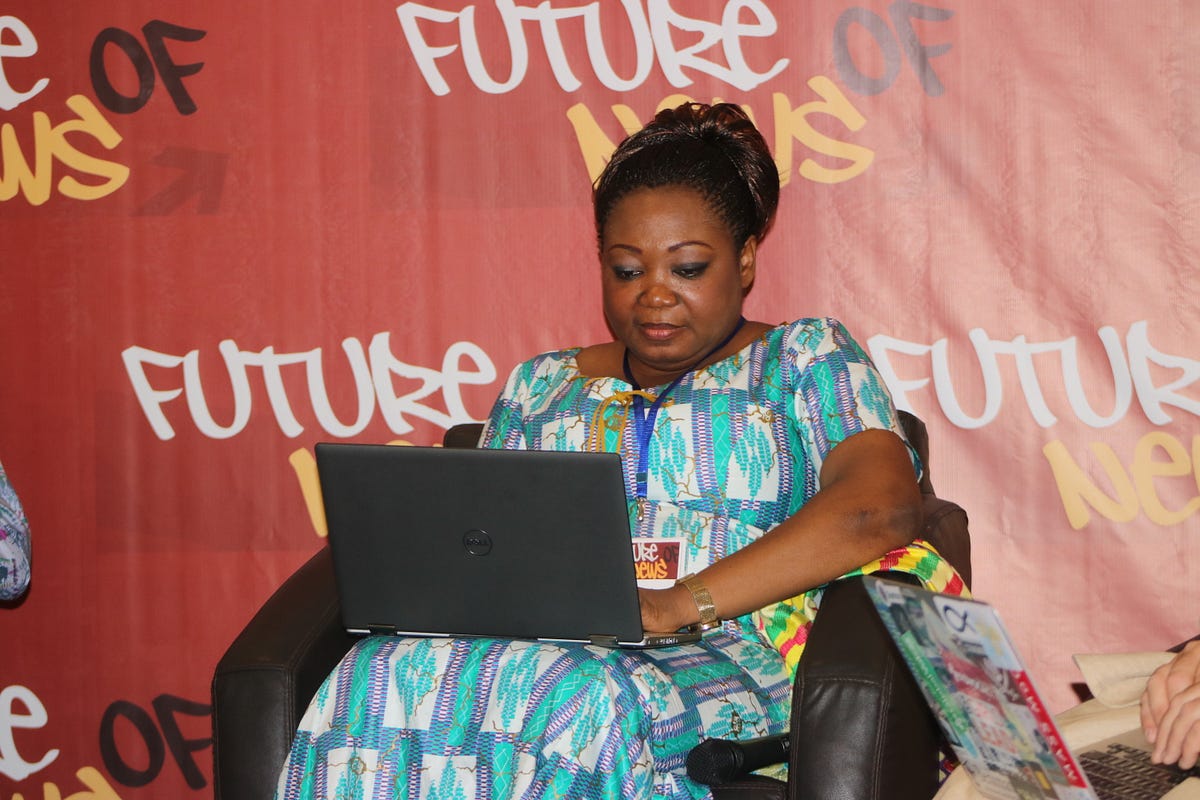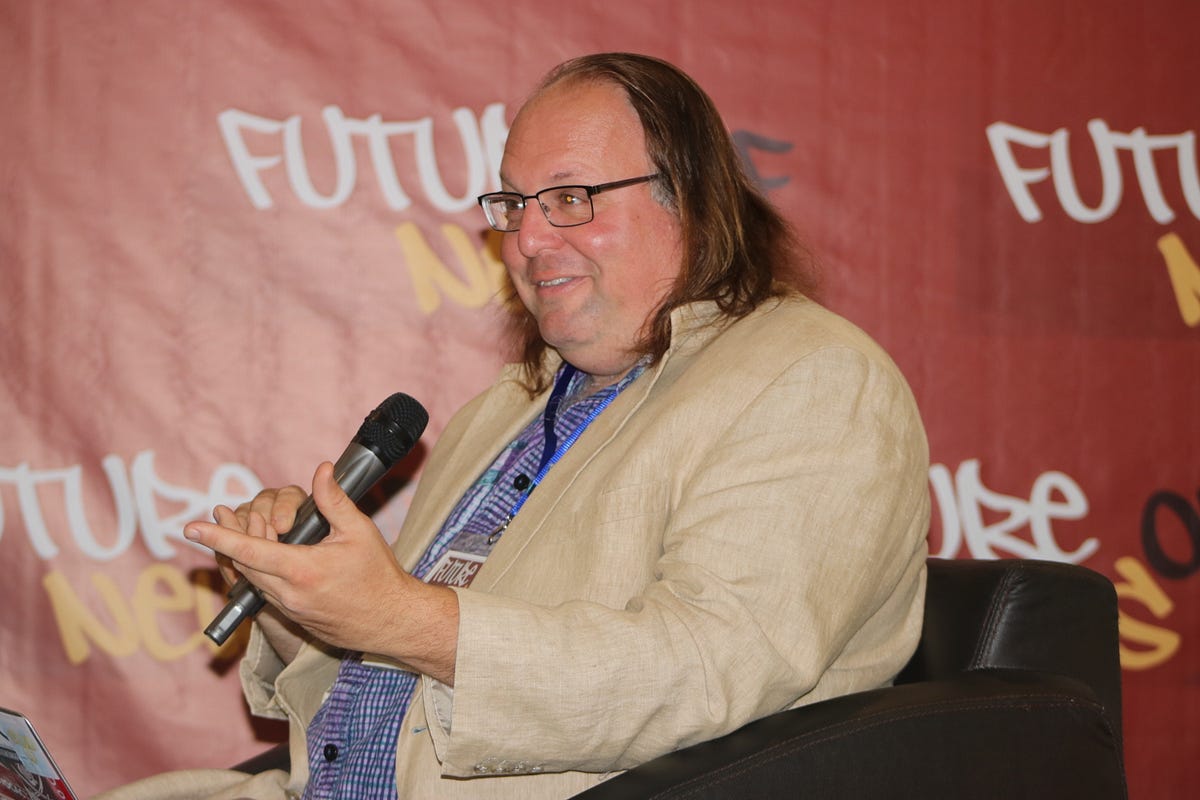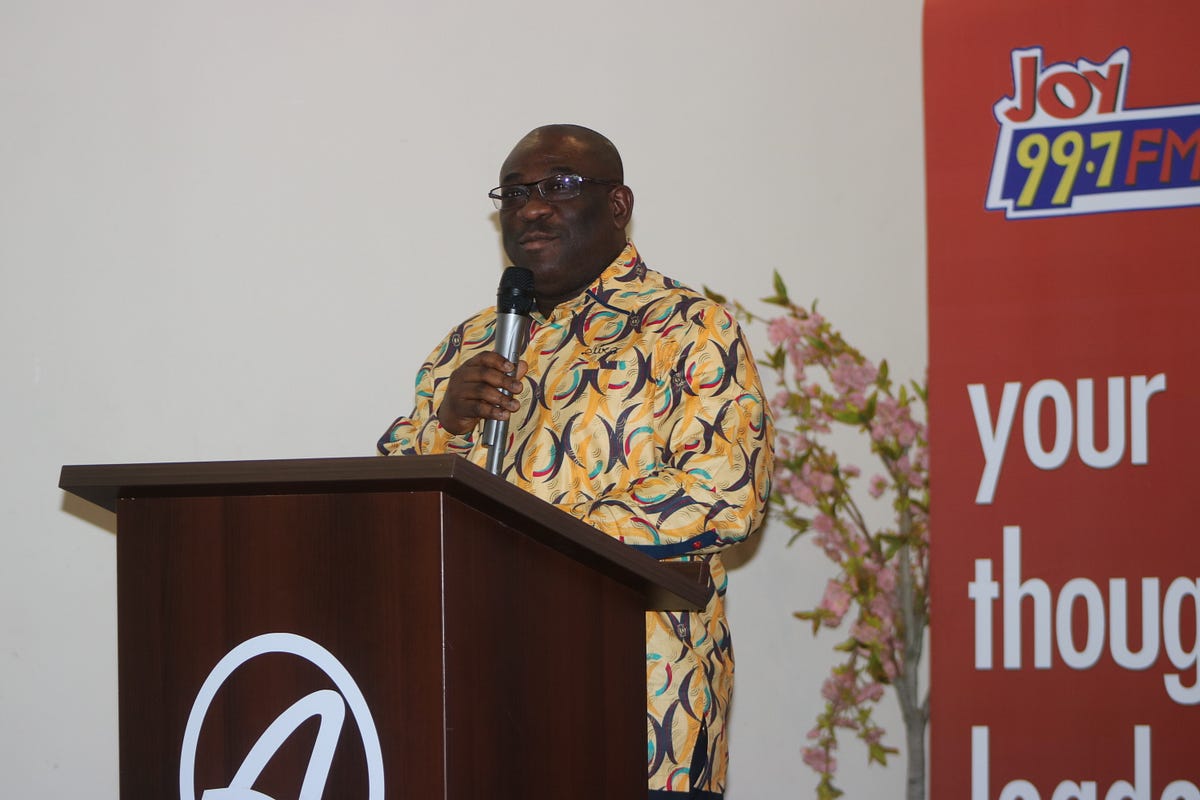The recent #FutureOfNews forum hosted by Pen Plus Bytes brought more than 100 international media professionals together to debate the future of Ghanaian news for its journalists and for the region's growing community of information creators and consumers.
Panelists Ethan Zuckerman (@EthanZ), director for the MIT Center for Civic Media, the WWW Foundation's Africa Regional Coordinator Nnenna Nwakanma (@nnenna), Dan Gillmor (@dangillmor), head of the Knight Center for Digital Media Entrepreneurship at ASU and Joy FM's Nhyhira Ado (@GhRainmaker) spoke on a range of issues from, current trends in digital media innovations, to new tools for civic journalists, the professional journalist's role in an evolving market and of course, how to deal with trolls.
Here's the @africarizing team's top 5 take-aways from the event:
- Target the 7 billion
"Your competition is not, the Daily Graphic. Your competition is the BBC and CNN" — @nnenna

Panelist, Nnena Nwakanma tweeting away
Nwakanma said for her, it's not only about the 25.5 million Ghanaians looking for news, it's also about the 7 billion human beings on planet Earth. She encouraged Ghanaians to tell their own story and said local journalists should curate stories about Ghanaians that reflect community issues using our unique voice that will also connect us to a wider, global audience.
2. Homegrown is the best grown
"Ghanaians need to build their own platforms"
— @EthanZ

Media scholar, Ethan Zuckerman urging Ghanaians to be proactive in creating local platforms such as Twitter
It's the era of hashtags and Ghanaians should not be left out. Daily conversations about dumsor, our government, our music and our 'frenemies'(check out #ghanavsnaija) are all taking place on a platform owned by a U.S.-based company; Twitter. And as Zuckerman pointed out at the panel, sometimes these platforms may restrict content. He encouraged Ghanaians to develop a platform of our own that will enable us to continue having thought-provoking and entertaining conversations but, in an environment the community can control.
Panelists also debated how crucial it is for Ghanaians to have these conversations in as many local languages as possible.
Their advice, don't leave it to the one person who understands English in an Nzema-speaking community to interpret a broadcast or news report for others. To reach the 7 billion, journalist will have to learn how to engage indigenous speakers or as Nwakanma said, "When the Black Stars are playing, the best way to understand the match is in Twi."
3. Digital Inclusion
"The connected consumer is the future of news"
— @nnena
Deputy Minister of Communications, Ato Sarpong, said Ghana currently has 16 million mobile phone users and 4.2 million internet users. That means the internet is still unavailable to a large number of people country-wide. For most Ghanaians, accessing the internet or owning a mobile phone may simply be unaffordable. There's also the lack of infrastructure necessary in many areas to meet the demands of new mobile users.
Ghana's public and private sectors need to combine their efforts to educate, connect and collaborate with its citizens to advance digital literacy and accessibility through the use of affordable technology.

Deputy Minister of Communications, Ato Sarong, addresses media professionals at the Future of News forum
Sarpong also said he had great interest in helping bridge this gap and called out Ghana's traditional media to become more digitally literate and social media savvy. Gillmor added, 'it is the duty of the journalist to share this knowledge with their consumers' and also to teach them how to be secure in their use of technology.
4. Pay forth thy coin
" Journalism isn't just a money-making profession but a social profession"
— @EthanZ
Right now in Ghana, monetization strategies for journalism center around outdated subscription models and the guy on the roadside who sells you The Daily Graphic in that on-your-way-to-work-45-minute-traffic.
But sometimes, it's not about the money. So how do we, as consumers and as a community, compensate journalists, for a job well done?
For Nwakanma, she said, 'a mention, a share and couple hundred followers' does the trick while for Ado, he says it's even simpler, "Money is a bi-product of a job well done".
5. #ChaleLetsMakeNews
"Journalists tend to be nervous about advocacy journalism. We have to get over that"
— @Ethan Z
But what is it about a writer's post or tweet that makes us comment? or like? or @reply? Whatever it may be, Zuckerman and others at the forum said journalists need to remember there are many more people in the community who care just as much and want to talk about it with you.
So journalists (all journalists!), don't be afraid to make your argument, hold your point of view and engage with your community. Tweet it, write a blog post, reply to a comment or publish a YouTube video response…
Chale let's make some news!
So what will Ghana's newsrooms look like in the future?
How will you get your news? Join the conversation by tweeting us @africarizing and use the hashtag #futureofnewslookslike to share your thoughts. and if you missed our live tweeting on Friday, here are a few more hi-lites:





No comments:
Post a Comment